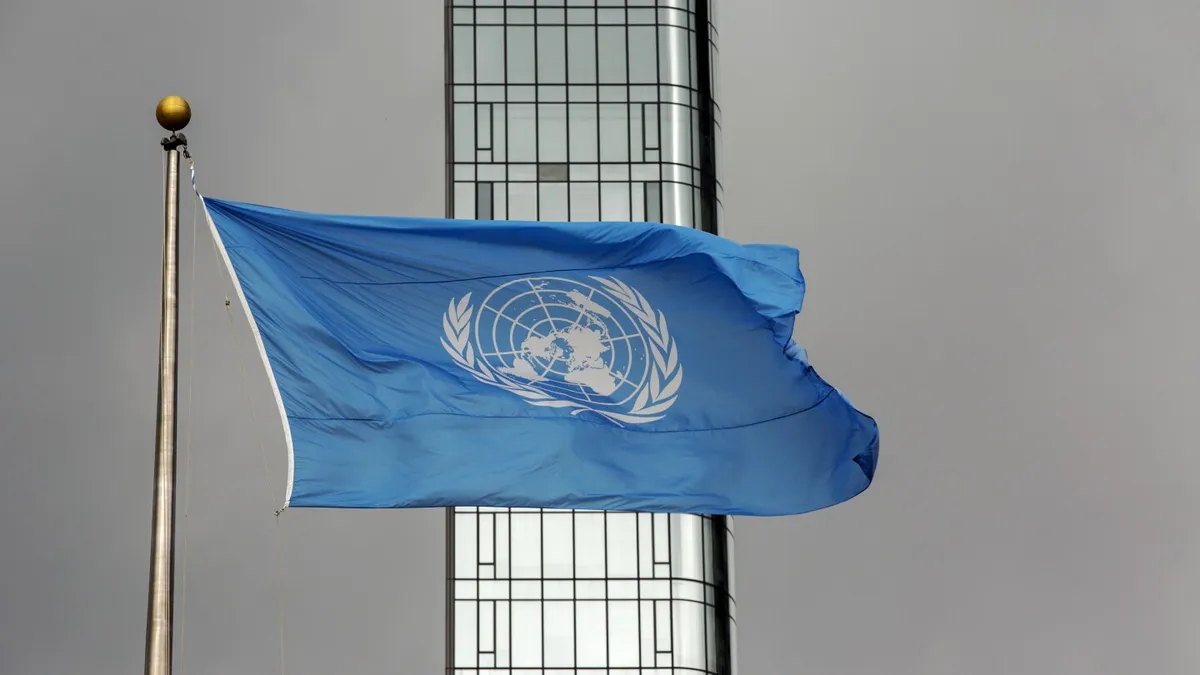
As the United Nations marks its 80th year, world leaders are set to gather on Monday at one of the most critical moments in the organization's history. With ongoing wars in Gaza and Ukraine, a shifting U.S. foreign policy, and a growing number of hungry populations, the challenges confronting the U.N. are as severe as they have ever been. The Secretary-General, Antonio Guterres, emphasized the gravity of the situation, stating last week that “international cooperation is straining under pressures unseen in our lifetimes.”
The annual high-level gathering at the U.N. General Assembly will welcome presidents, prime ministers, and monarchs from approximately 150 of the 193 U.N. member nations to its headquarters. Guterres views this convening as a vital opportunity for dialogue, even amidst profound challenges. “We are gathering in turbulent — even uncharted — waters,” he remarked, highlighting urgent issues such as “our planet overheating, new technologies racing ahead without guardrails, and widening inequalities.”
During the assembly, Guterres aims to utilize over 150 one-on-one meetings with leaders and ministers to advocate for communication, collaboration, and practical solutions. Essential topics include resolving conflicts, combating climate change, regulating the rapid advancement of artificial intelligence, and securing funding to meet the U.N.'s 2030 goals, which include eradicating poverty and ensuring quality education for all children. He insists that leaders must focus on tangible progress rather than mere “posturing and promises.”
However, observers remain skeptical about whether meaningful progress can be achieved in a deeply polarized world. Richard Gowan, the U.N. director for the International Crisis Group, predicts that three main issues will dominate discussions: the return of U.S. President Donald Trump for his second term, the escalating crisis in Gaza, and the future of the U.N. amidst significant budgetary constraints, particularly due to reduced U.S. contributions to both its regular and peacekeeping budgets.
The ongoing conflict in Gaza is expected to be a central topic, especially as Israel launches substantial offensives in Gaza City, leading to mass evacuations. A recent report from independent experts commissioned by the U.N. Human Rights Council accused Israel of committing genocide, an allegation Israel has vehemently rejected as “distorted and false.” Palestinian Ambassador to the U.N., Riyad Mansour, has underscored that “Palestine is going to be the huge elephant in this session of the General Assembly.”
The spotlight will intensify during a high-level meeting co-chaired by France and Saudi Arabia, focusing on implementing a two-state solution to the long-standing Israeli-Palestinian conflict. Compounding the situation is the prior refusal of the Trump administration to grant a U.S. visa to Palestinian President Mahmoud Abbas for attendance. However, the General Assembly recently passed a resolution allowing Abbas to address the assembly via video, similar to the previous year’s arrangement for Ukrainian President Volodymyr Zelenskyy.
This year, Zelenskyy will attend the assembly in person, coinciding with a Security Council meeting on Ukraine scheduled for Tuesday. Earlier this month, the assembly overwhelmingly supported a two-state solution and urged Israel to commit to establishing a Palestinian state, despite Prime Minister Benjamin Netanyahu's declaration that “there will be no Palestinian state.” Notably, over 145 countries already recognize Palestine as a state, and Mansour anticipates that “it’s going to be 10 more” countries announcing their recognition at Monday’s meeting.
The high-level week will also encompass discussions on critical global challenges, including climate change, the protracted conflict in Sudan, and the humanitarian crisis in Haiti. Additionally, a commemoration of the 30th anniversary of the Beijing women’s conference will highlight the ongoing struggle for gender equality, a goal that Guterres warns is becoming increasingly elusive, projecting that it might take 300 years to achieve under current conditions.
One of Guterres’ key aims for this session is to garner support for his plans to reform the United Nations, ensuring it becomes more responsive to the world's evolving landscape by 2025. Due to funding cuts from the U.S. and other nations, the U.N. announced a necessary reduction of 15% in its regular operating budget for 2026, amounting to $3.2 billion, alongside a 19% cut in staff positions.
Gowan expressed that while the U.S. and other countries are unlikely to abandon the U.N., the organization is undoubtedly navigating an extraordinarily challenging period that will necessitate adaptation and change. He remarked, “The U.N.’s resonance on peace and security issues is unquestionably not what it was, but I think that the organization will continue to muddle through.”
As leaders convene this week, the world watches closely, hopeful yet uncertain about the potential outcomes of their discussions.